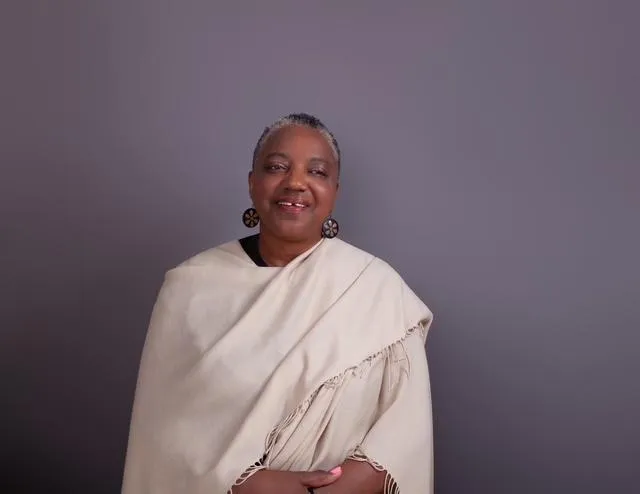Publications
Projective Processes on the Front Line
Abstract
I am a social work doctorate student at the Tavistock Centre & UEL researching the nature and impact of projective processes in front line social work settings and management via the close study of a Children & Families Resource Centre. This paper forms part of a fuller thesis and focuses on two fragments of data from an interview with the project managers, who share material about a black male service user who had regular supervised contact sessions with his daughter at the centre.
Click here to read
Leadership, Through Loss and Change: Management of Change Viewed as Challenges within a Couple Relationship
Abstract
This paper emanated from a Doctoral Thesis, which was an in-depth single case study of a frontline social work team based in the third sector. The research took place over a period of five months and included weekly visits to observe the day-to-day operations of the team, attending special events such as the Teams Away Day, Team Meetings and undertaking management consultation sessions with the Project and Deputy Managers. The thesis concludes that just as frontline staff require effective support, frontline managers also need space to effectively reflect on their experiences in role. The focus of this paper is the relationship dynamic between the managers, the team, senior management and the wider organisation as they dealt with the sudden announcement of the project’s closure. The paper makes use of ethnographic and psychoanalytically informed observations of the team’s ordinary day to day work processes, in addition, use was made of consultative interviews (MCI’s) with the managers of this service who were afforded space to think about their management roles. Aspects of thematic analysis informed by psychoanalytic theory were used to analyse the material.
Click here to read
'So you want to be a manager?' To what extent does the recognition and understanding of unconscious processes play a useful part in the management of frontline social work practice. An in-depth study of a children and families resource centre
Abstract
This is an in-depth singlecase study of a frontline social work team based in the third sector. The Bromyard Team provided comprehensive parenting assessments in care proceedings and safeguarding matters. This research is partly derived from the author's own experience and makes use of ethnographic and psychoanalytically informed observations of ordinary day to day work processes in the professional team. The study aims to identify, understand and conceptualize the variety of emotional forces and relationship dynamics that impact on first line managers in social work and social care settings in order to deepen and extend understanding of these demands,and the stresses and conflicts managed by professionals in these roles. The author undertook Management Consultative Interviews (MCIs) with the managers of this service,in which they were afforded space to think about their roles and detailed field logs of researcher/observer experiences were used to gather data. The emergent data identified four emergent episodes, these were analyzed using aspects of thematic analysis informed by psychoanalytic theory. The overall findings of the study are that the first line manager often finds themselves assailed from all sides: task related anxieties that filter through the front line workers, organisational anxieties and projections that trickle down from above, wider environmental anxieties that rock the stability of services and also impact on more senior staff, personal anxieties and projections that invade the professional space and organisational/systemic anxieties arising from inter-group, cross-boundary roll tensions. The author recommends that rather than being left to cope with such experiences, front line managers need effective and robust support, which would promote further understanding of the emotional and unconscious forces affecting their role.
Click here to read

Testimonial
What They Say
“Having Dr. Sylvia as my supervisor was hands-down one of the highlights of my time abroad! While navigating my internship and living in a foreign place, she was there for me every step of the way and was always so in tune with my emotions.
Whether I was experiencing a high or a low, she never failed to provide a comforting space for me to reflect and be vulnerable, whilst also challenging me to grow. It was a joy getting to sit and chat with her as her infectious energy, passion for social work, and diverse knowledge of the field was incredible to witness. I’ve learned so much about social work and myself through my time with her. She’s truly the definition of a powerhouse social worker!
Working with Dr. Smith as my doctoral supervisor has been transformative. Her psycho-social insights and ethnographic approach challenged me to deepen my research questions, and her supportive feedback loops kept me on track through every milestone. I couldn’t have completed my thesis without her tailored guidance and unwavering belief in my potential.”
Anna Pham - Student - Florida State University
“I’ve had the privilege of knowing and working alongside Dr Smith and I continue to be inspired by her thoughtful approach, deep knowledge, and her grounding in theoretical psychological frameworks. Her demonstrative commitment to elevating voices across social work and related professions, offering a platform where experts share insights that are both practical and profound.
What stands out most is the compassionate and insightful way she used her podcast during the COVID-19 pandemic. At a time when many were seeking clarity and connection, she provided both—curating conversations that educated, supported, and uplifted. Her ability to distil complex ideas and direct listeners to key articles in the Social Work Magazine was particularly noteworthy, helping professionals stay informed and engaged during a period of rapid change.
Her actual voice—calm, authoritative, and captivating—adds a unique and grounding presence to every episode. It’s a voice that invites reflection, encourages learning, and fosters a sense of community. In a field that thrives on empathy and expertise, Dr Smith brings both in abundance.
”
Dr Arlene Weekes - Author, Academic & Consultant
